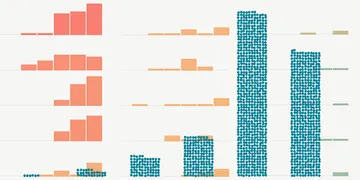This is The Marshall Project - Cleveland’s newsletter, a twice monthly digest of criminal justice news from around Ohio gathered by our staff of local journalists. Want this delivered to your inbox? Subscribe to future newsletters.
Cleveland yet to form committee to allay surveillance concerns
Despite months of promises, Cleveland Mayor Justin Bibb’s administration has yet to form a technology advisory committee to address privacy and civil rights concerns over how police are using powerful surveillance tools.
Bibb’s administration held one internal meeting earlier this year and planned to hold a second internal meeting June 20 to establish the committee.
That meeting never took place, Bibb’s spokesperson, Sarah Johnson, told The Marshall Project - Cleveland.
The committee remains a priority, Johnson said, but progress stalled after several high-ranking leaders left City Hall recently amid turmoil.
“We had to pause to rebuild the team…” Johnson wrote in a statement. “Now that the new team members are in place, we will get them up to speed and schedule the next meeting.”
In March, we reported on the city’s slow efforts to create an oversight committee.
At the time, Johnson said the committee meetings would be held in public after we reported the committee initially planned to meet privately.
Bibb initially promised to form the committee after we reported in September 2022 that the city lagged behind others in sharing policies and details when police deploy powerful digital tools.
— Mark Puente
Save the date: Summit to address Ohio suspended license crisis
The Marshall Project - Cleveland is partnering next month with a group of nonprofit organizations in sponsoring a community summit focused on Ohio’s suspended driver’s license crisis.
The event is hosted by State Rep. Darnell Brewer of Cleveland and is also co-sponsored by Building Freedom Ohio, Neighborhood Connections, Policy Matters Ohio, Towards Employment and WEWS News5.
The summit is set to take place Sept. 17 at Maple Heights High School, 1 Mustang Way, Maple Heights, 44137. The event is free and open to the public.
It kicks off at 5 p.m. with a town hall panel followed at 7 p.m. with a resource discussion to provide guidance to those impacted by debt-related license suspensions.
Brewer will be on hand to discuss two bills, one of which he has co-sponsored, that are designed to help drivers restore their license.
Marshall Project - Cleveland investigative reporter Mark Puente, and News5 reporter Tara Morgan will also be on hand to discuss their reporting on the license suspension crisis.
Got questions about the justice system? Ask us.
We welcome the chance to answer questions about how things work or are supposed to work in our criminal justice system.
Have a question you’d like us to tackle or fact check? Ask us. If we can answer it, we will. Submit questions here and find all the questions we’ve answered on our website.
This week’s question focuses on the cost of GPS monitoring for people awaiting trial or serving probation,
Question: GPS devices, or electronic ankle monitors, may keep people out of jail, but they cost money to use. Who pays the fee in Cuyahoga County Common Pleas Court?
Answer: GPS monitoring is often used as a condition of bail while a person’s case is pending. People on probation or parole also may be subject to GPS monitoring as a condition of their release to ensure they are following the rules of their supervision.
In 2020, ACLU Ohio called for GPS monitoring reform in Cuyahoga County, citing exorbitant costs to defendants, many of whom had not been convicted of a crime. The Cuyahoga County Common Pleas Court was requiring defendants to pay $56 a week for ankle monitoring services.
But that changed in 2021, according to Darren Toms, the court’s spokesperson. He said the court reduced GPS fees from $8 a day to $3.20 a day with a $576 cap.
However, people aren't denied GPS monitoring because they can't afford the fees, Toms said.
Under the new guidelines, fees aren’t charged until the case is decided. If the defendant is found not guilty or the case is dismissed, the fees are automatically dropped. If the person is convicted and sent to prison, there are no fees.
Fees can apply if the person is placed on probation. Their attorney can ask the trial judge for the fee to be waived. Usually, the fee is waived, if the defendant can’t afford to pay, Toms said.
If a fee is required after a conviction, the person can do community service at a rate of $15 per hour to cover the cost.
Around the 216
- A preliminary autopsy on the body of Frank Tyson, 53, who died in April while being restrained by Canton police, has been ruled a homicide, WJW Fox 8 reported.
- A police officer in central Ohio has been indicted for murder in the shooting death last year of Ta’Kiya Young, a 21-year-old pregnant Black woman accused of shoplifting, according to Spectrum News.
- A lawsuit alleges Summit County officials failed to properly monitor a man freed on bond to await trial, allowing him to travel to Minnesota where he is accused of killing a man, WKYC 3News reports.
- The family of a woman fatally shot last month by Medina County sheriff’s deputies says Victoria Carter, 37, suffered with mental health issues for most of her life, Cleveland.com reported.
